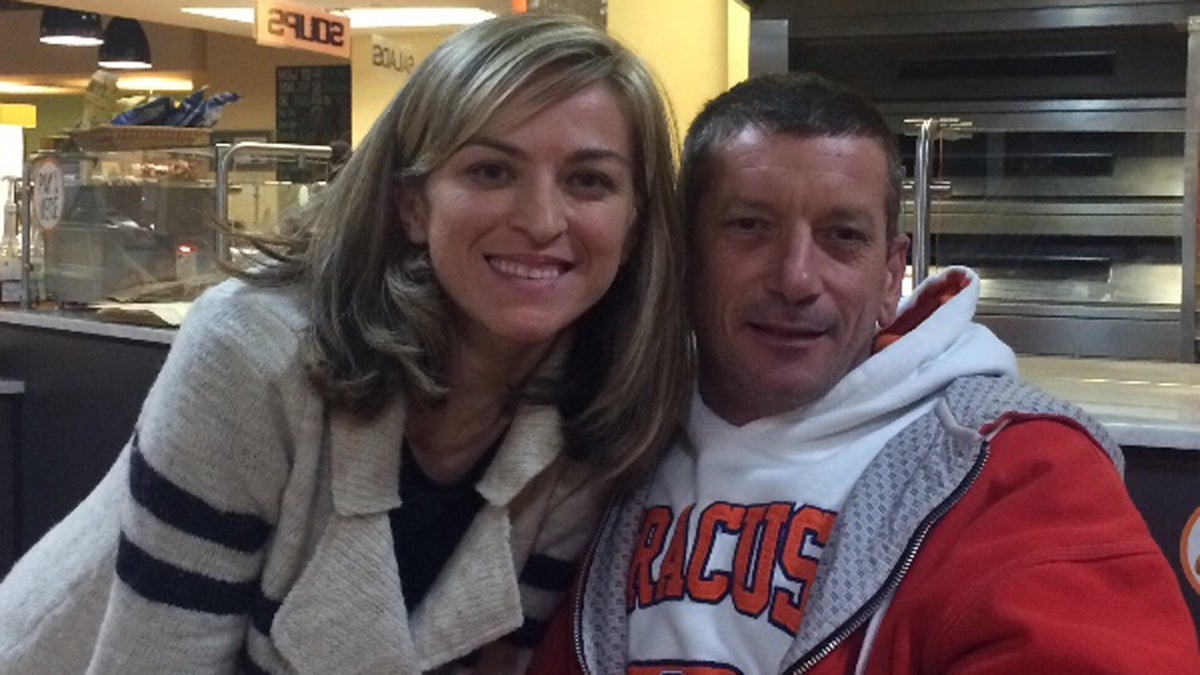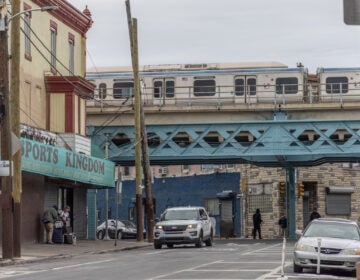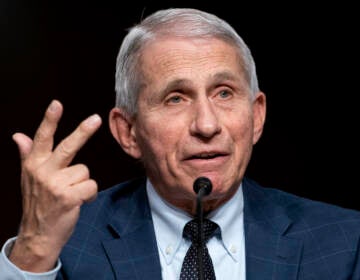Building supplies? Jewelry? Babysitting? Kidney transplants get creative with Craigslist
Listen
Nina Saria and Glenn Calderbank (Image via (gofundme.com/helpmydonor)
Last week, doctors at the University of Pennsylvania Hospital canceled a kidney transplant surgery under unusual circumstances. The donor, Glenn Calderbank, was diagnosed with liver disease on the operating table.
This surprise comes at the end of a kidney transplant that didn’t even begin as planned. The patient and donor met online, part of a growing trend.
Glenn Calderbank builds things for a living. He’s a contractor based in West Berlin, New Jersey. But the man is torn up about his kidney. He’s got a scar on his stomach and a knot in his heart for an organ that won’t work for anyone. And he can’t fix it.
His wife passed four years ago from kidney disease. His kidney couldn’t save her; he wasn’t a match. Six months ago, he found another life he could save.
While searching Craigslist for construction equipment, Calderbank came across an ad unlike any he’d ever seen before. The post was miscategorized; the ad somehow ended up in Craigslist’s “Building Supplies” section. He clicked it.
“Searching for a Brave Person,” it began. It was posted by the family of Nina Saria, a woman in her early 30s from Egg Harbor, New Jersey, who was diagnosed with an auto-immune disease more than a year ago.
Saria began dialysis treatment soon after her diagnosis. After a year of waiting for a kidney transplant donor, her husband, Ray, felt desperate to expand their search. So he got creative. He posted a request on Craigslist.
The Sarias and Calderbank join a rising trend of families in need whose organ transplants begin online, between strangers.
Joel Newmann has worked at the United Network for Organ Sharing for two decades. The national nonprofit coordinates kidney transplants, and most of their donors are deceased. Why? The wait list for a live donor is long. Really long.
Newmann says that increased rates of diabetes, hypertension, and poor lifestyle choices are to blame. And that number is growing, he said, “at a considerable rate.”
Most patients must wait four to seven years for a living kidney donor. Newmann has noticed that these days, more and more families are searching online to find their donor match. But he admits it hasn’t always been this way.
“There probably were more concerns within the transplant community several years ago,” Newmann said.
He adds that for many years, most kidney donors — even if they weren’t blood relatives — knew the patient in need of a transplant personally. He recalls that the transplant community had a lot of suspicion about “stranger donors” — at least at first.
“With people who didn’t know each other,” Newmann remembered, “using those social media networks was a little new and strange.”
Yet Newmann thinks this is changing. “It’s more common today,” he said. “Social media is becoming a very common way for people to develop relationships of all sorts — whether that’s business or personal relationships or, now, in some cases, introducing somebody to the need for a living donor transplant.”
Newmann says that the most important part of the process is that every potential donor must be thoroughly apprised of the risks involved. Every potential donor must have a “lengthy conversation” with the transplant hospital to learn about those risks and to “give proper consent,” he emphasizes.
Jennifer Flood, the founder and president of The Flood Sisters Kidney Foundation of America, knows this all too well. In 2007, she watched as her father dealt with the news of a kidney disease diagnosis. Flood says that she knew dialysis and the kidney transplant wait list weren’t good options for her father.
“We just knew that we had to find a way,” she said. “We weren’t going to see our dad die, waiting for a donor. You just have to take action. You just have to do the right thing.”
She decided to post a kidney donor request on Craigslist — after all, she laughs, she had luck using the site for babysitting and her jewelry business. Hundreds of donors replied — and on Dec. 10, 2008, one donor’s kidney saved her father’s life.
Flood says she knew she needed to share her experiences with other patients in need. Using her nursing background, Flood developed a process for screening the potential donors who replied on Craigslist.
Now, she’s president of The Flood Sisters Kidney Foundation of America, which finds kidney donors for patients in need. Flood says the organization was founded to provide matching services with stranger donors coming forward who would like to save a life. The foundation has matched seven donors since 2007.
Flood says the foundation is successful because it shares patients’ stories online.
“Over the years, as more cases have come about, and people — especially the transplant teams — have seen that people don’t have family members, or don’t have people would test or be a match,” she said. “So their only way is to go outside their family. And that’s really through social media.”
Still, even if a donor has good intentions, it isn’t an easy process. Every donor must pass months of health screenings and tests. Flood says that many hospitals still refuse to operate on a patient with a kidney donated by a stranger.
“All hospitals have guidelines. Some are more flexible than others. And there’s others that just won’t take on a stranger case. They’re not going to do it,” Flood said. “And you just have to move on, and find the hospital that will.”
Still, Flood has seen progress. She recalls that in 2008, UCLA “wasn’t open to stranger-living donations.” Now, the hospital participates in “paired exchanges” programs.
“It’s all about building relationships with these hospitals,” said Flood.
Yet the transplant wait list is getting longer. Of the 123,000 people nationwide who are waiting for an organ transplant, more than 100,000 are in line for a kidney.
For many, a kidney is a life line. The right donor can save a life. Strangers or not, many are finding their match online.
WHYY is your source for fact-based, in-depth journalism and information. As a nonprofit organization, we rely on financial support from readers like you. Please give today.





